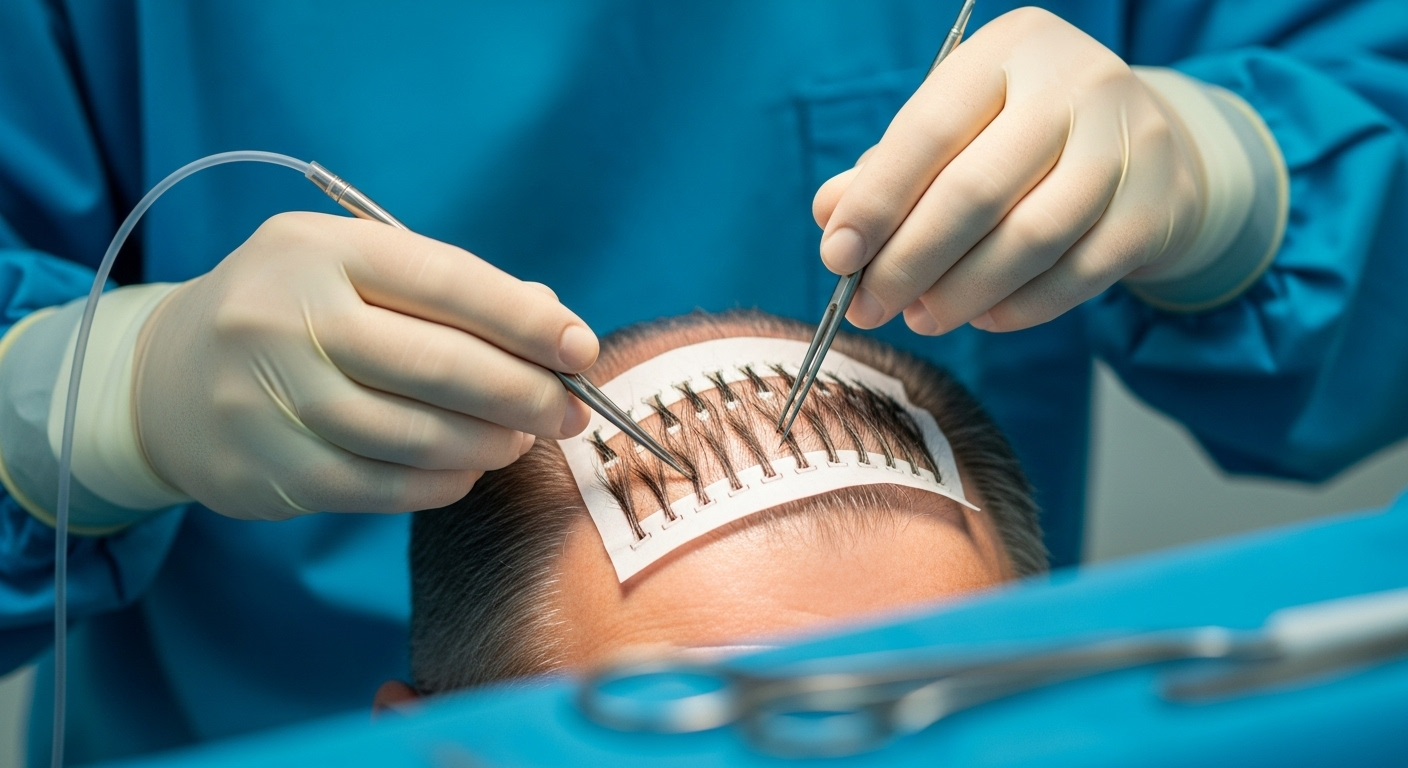Hair Transplant 2025: UK vs Turkey
Hair transplantation continues to gain popularity as a solution for hair loss, with the UK and Turkey emerging as two prominent destinations for the procedure. As we approach 2025, significant differences in cost, quality, and patient experience between these countries are shaping the decisions of those considering this life-changing treatment. Understanding these distinctions is crucial for anyone contemplating a hair transplant in the coming years.

UK Hair Transplant Cost 2025 Projections
The cost of hair transplants in the UK has historically been among the highest globally, and this trend is expected to continue into 2025. Currently, UK-based clinics charge between £3,000 to £15,000 for a standard follicular unit extraction (FUE) procedure. By 2025, these prices are projected to increase by approximately 10-15% due to rising operational costs, advanced technology integration, and inflation.
Premium clinics in London and other major cities typically command higher fees, with Harley Street specialists often charging upward of £10,000 for comprehensive treatments. The primary factors affecting UK hair transplant costs include the surgeon’s expertise, clinic reputation, the number of grafts required, and the specific technique employed. Most UK clinics maintain transparent pricing structures based on graft count rather than offering package deals.
Transplant Hair In Turkey: The Cost Advantage
Turkey, particularly Istanbul, has established itself as the global capital for hair transplantation, largely due to its significant cost advantage. In 2025, Turkish clinics are expected to continue offering procedures at 60-80% lower prices than their UK counterparts. A typical FUE procedure that might cost £6,000 in the UK can be obtained for approximately £1,500 to £3,000 in Turkey, including accommodation and transfers.
This remarkable price difference stems from Turkey’s lower operational costs, favorable currency exchange rates, and government incentives supporting medical tourism. Many Turkish clinics operate on a high-volume business model, allowing them to maintain profitability despite lower per-patient charges. The competitive market has also driven clinics to include comprehensive packages covering accommodation, transportation, and aftercare, creating an attractive all-inclusive offering for international patients.
Quality Considerations: UK vs Turkey Hair Transplants
While the cost differential is substantial, quality considerations require careful evaluation. UK clinics operate under strict regulatory oversight from the Care Quality Commission (CQC) and professional bodies like the General Medical Council. Surgeons typically complete extensive specialized training and certification in plastic surgery or dermatology before performing hair transplants.
In Turkey, quality varies significantly across clinics. The best Turkish facilities feature state-of-the-art equipment and internationally trained surgeons who perform thousands of procedures annually, developing considerable expertise. However, the rapid growth of the sector has also led to the emergence of less reputable clinics where technicians rather than qualified doctors may perform critical aspects of the procedure.
By 2025, this quality gap is expected to narrow as Turkish regulatory authorities implement stricter standards and UK clinics adopt more competitive pricing strategies to retain domestic patients. Accreditation from international bodies like the International Society of Hair Restoration Surgery (ISHRS) is becoming increasingly important for distinguishing reputable clinics in both countries.
Recovery and Follow-up Care Comparison
The post-procedure experience differs significantly between UK and Turkish hair transplant journeys. UK patients benefit from convenient access to follow-up appointments, with clinics typically offering multiple check-ins during the crucial first year after transplantation. If complications arise, patients can easily return to their surgeon for assessment and intervention.
Turkish clinics have adapted to the limitations of distance by developing comprehensive remote follow-up protocols. By 2025, most reputable Turkish facilities will offer enhanced digital aftercare services, including video consultations, dedicated mobile applications for tracking recovery, and partnerships with healthcare providers in patients’ home countries for in-person assessments if needed.
However, UK clinics maintain an advantage in continuity of care and the legal protections afforded by domestic medical regulations. This security can be particularly valuable if revision procedures become necessary, as UK patients have clearer recourse through national healthcare complaint systems and professional regulatory bodies.
Comparative Analysis: UK vs Turkey Hair Transplant Services
The table below provides a comprehensive comparison of hair transplant services in the UK and Turkey based on key factors that patients typically consider:
| Factor | UK Hair Transplants | Turkey Hair Transplants |
|---|---|---|
| Average Cost (FUE 2000 grafts) | £5,000-£8,000 | £1,500-£3,000 |
| Surgeon Credentials | GMC registered, typically with plastic surgery/dermatology specialization | Variable; top clinics have internationally trained specialists |
| Regulatory Oversight | Strict CQC regulation | Improving but still variable enforcement |
| Facility Standards | Consistently high | Varies widely between clinics |
| Package Inclusions | Procedure only; accommodation/transport separate | All-inclusive packages with accommodation and transfers |
| Waiting Times | 3-6 months | Often available within weeks |
| Recovery Support | Multiple in-person follow-ups | Remote follow-ups, digital support systems |
Prices, rates, or cost estimates mentioned in this article are based on the latest available information but may change over time. Independent research is advised before making financial decisions.
The Future of Hair Transplants: UK and Turkey in 2025
By 2025, both markets are expected to evolve significantly. UK clinics will likely adopt more competitive pricing strategies and all-inclusive packages to compete with the Turkish market. Simultaneously, premier Turkish facilities will continue to invest in cutting-edge technology and international accreditation to address quality perception challenges.
Technological advancements, such as robotic-assisted transplantation and improved graft preservation methods, will become more widespread in both countries. However, the adoption rate may differ, with UK clinics potentially implementing newer technologies earlier due to their higher price points accommodating the substantial investment required.
The decision between a UK or Turkish hair transplant in 2025 will ultimately depend on each patient’s priorities regarding cost, convenience, quality assurance, and aftercare preferences. Those prioritizing maximum affordability will continue to find compelling value in Turkey, while patients seeking the highest regulatory assurances and convenient follow-up care may prefer domestic UK options despite the premium price.
This article is for informational purposes only and should not be considered medical advice. Please consult a qualified healthcare professional for personalized guidance and treatment.




